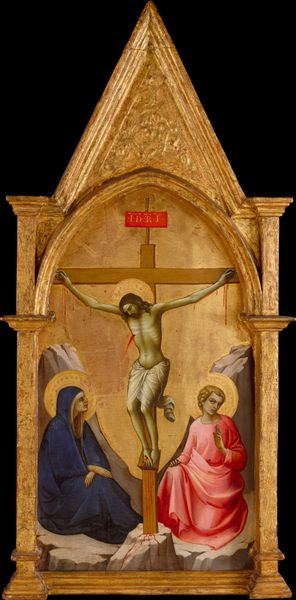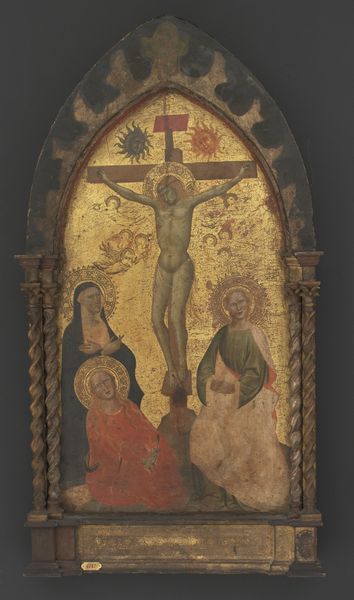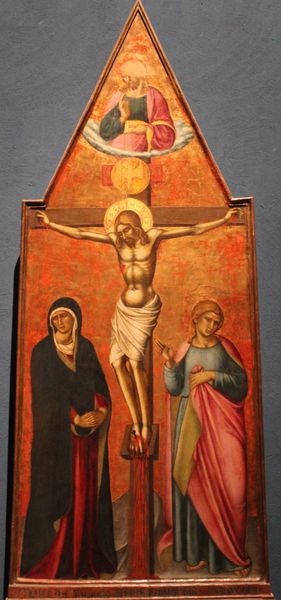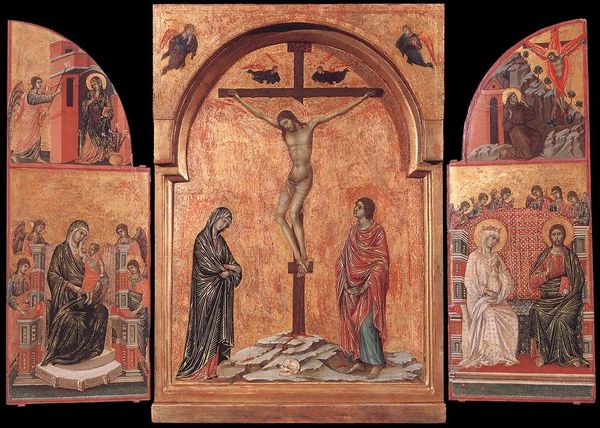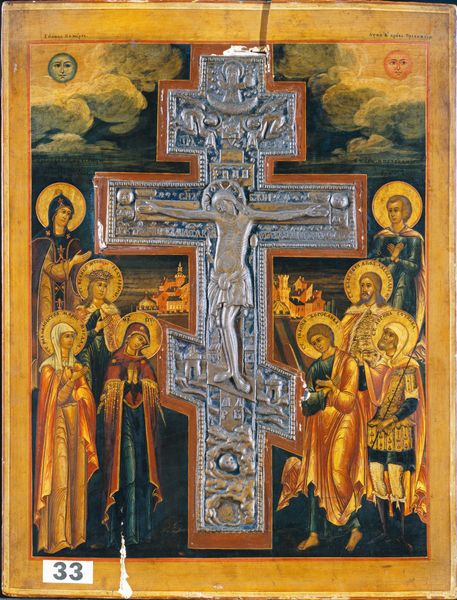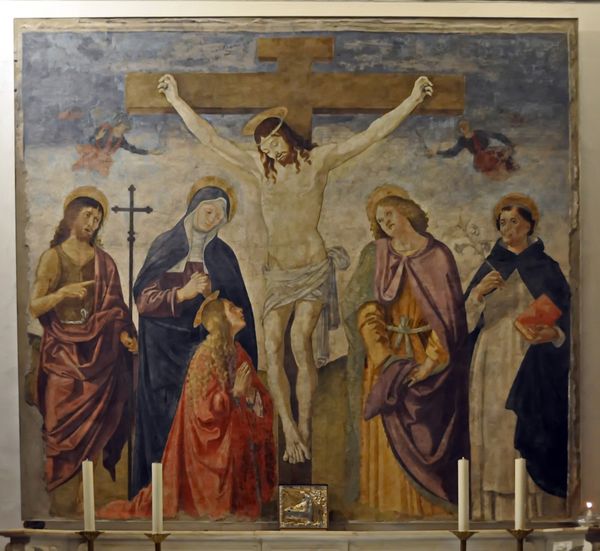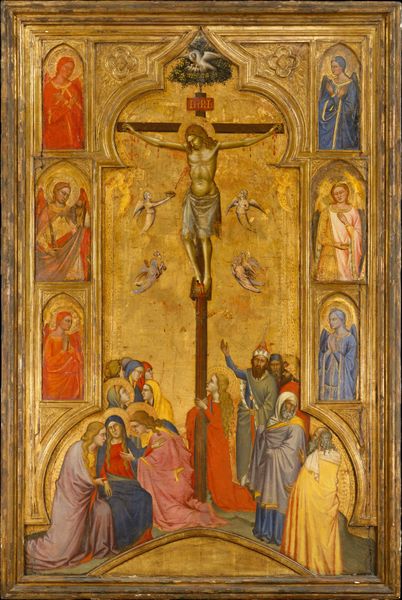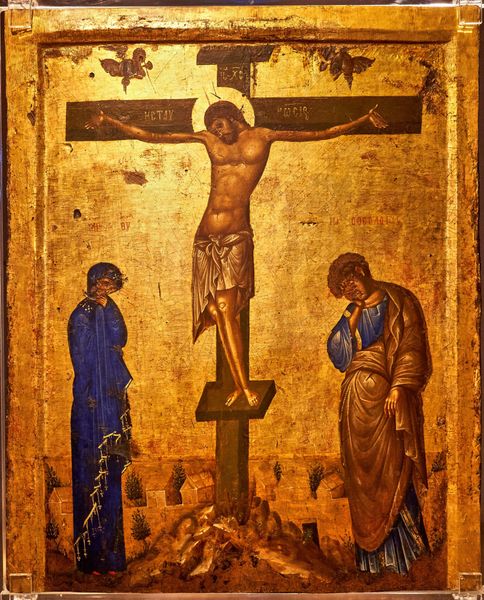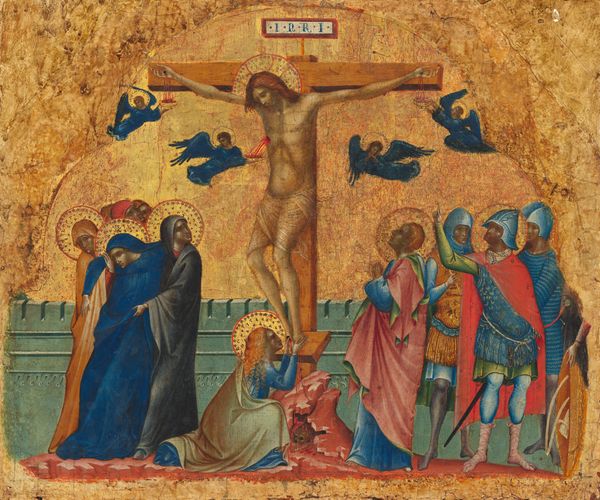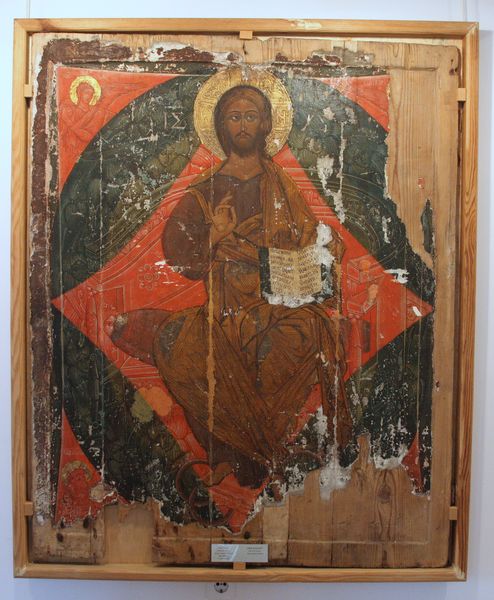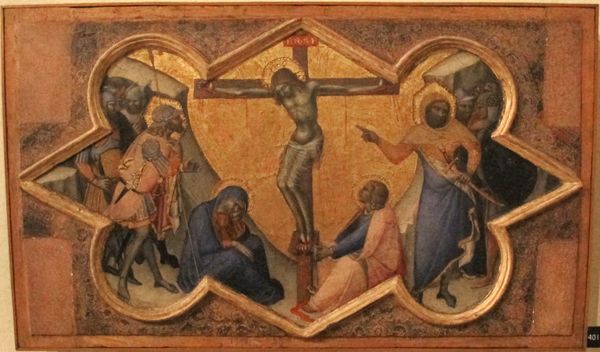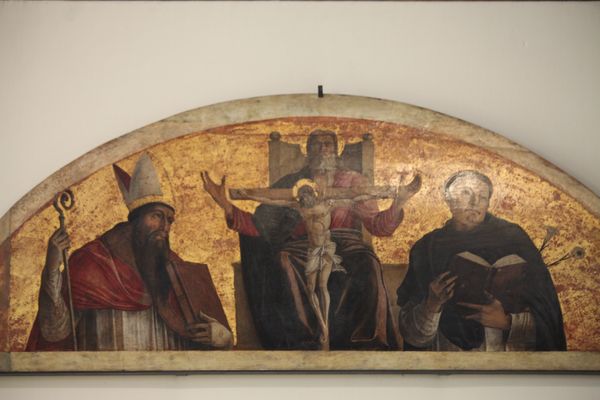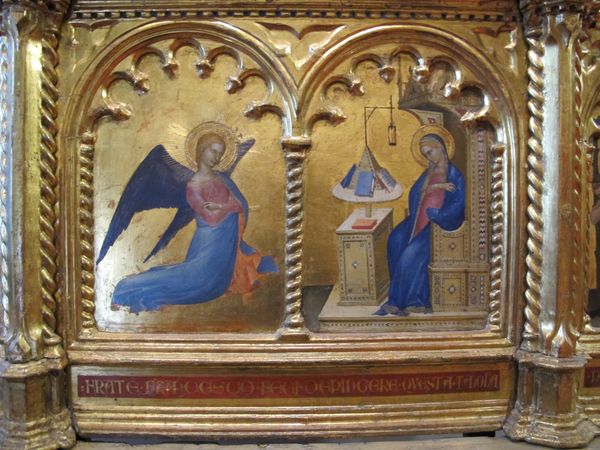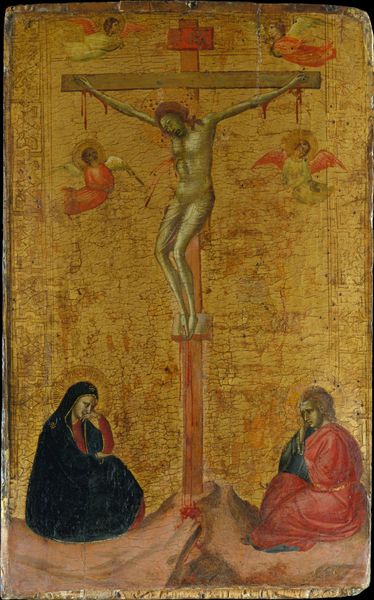
tempera, painting
#
portrait
#
narrative-art
#
tempera
#
painting
#
figuration
#
oil painting
#
history-painting
#
italian-renaissance
Copyright: Public domain
Editor: So, here we have Luca di Tommè's "Crocifissione," painted around 1370, in tempera. It has such a solemn and devotional feel. What catches your eye in this piece? Curator: Well, I'm immediately struck by how Tommè balances the brutal reality of the crucifixion with this shimmering, otherworldly gold background. It's almost as if the earthly suffering is framed by a divine glow, isn't it? Tell me, do you notice the expressions on the faces of Mary and John? Editor: Yes, Mary seems consumed by sorrow, almost collapsing. And John is gazing up at Christ with what seems like... acceptance? Curator: Exactly! It’s a masterful contrast. Mary embodies raw grief, while John seems to be contemplating the spiritual significance. And then consider Christ’s body, so realistically rendered yet almost floating against that golden halo. Have you seen other depictions of crucifixion from this period? Editor: I have. And it feels much more… human, more intimate, than some of the grander, more formal works from the later Renaissance. Curator: Precisely. There’s a tenderness here, an almost desperate plea for connection. This isn't just a historical event; it's an invitation to feel, to contemplate our own mortality, even. Does that resonate with you at all? Editor: It does. I’d never thought of it that way, but seeing Mary's grief alongside that divine gold definitely changes things for me. Curator: That's the power of art, isn't it? To make us look again, to feel a little differently, to perhaps glimpse the infinite in the finite. And I think di Tommè achieved that beautifully. Editor: Definitely given me a lot to think about. Thanks!
Comments
No comments
Be the first to comment and join the conversation on the ultimate creative platform.
